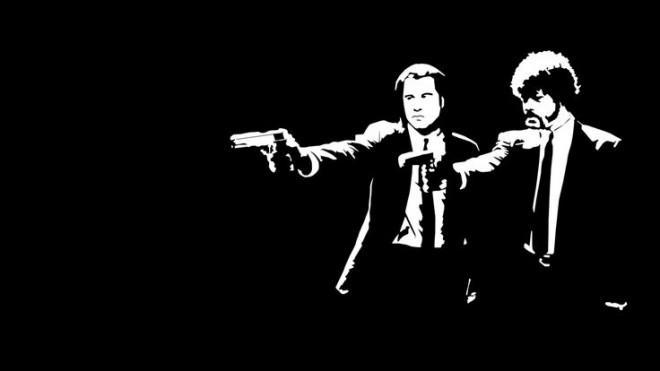Quentin Tarantino has been a living legend ever since his first film Reservoir Dogs premiered at Sundance Film Festival back in 1992 and became an instant classic. He's revered for his non-linear storytelling style of cinema in which he weaves in and out of satire and violent subject matter often (read: always) displayed visually and graphically. Tarantino self-proclaims as a "cinephile," meaning he's obsessed with cinema. Because of that fact, he often pays homage to film in his films.
The cross-screen swipe of "Gone With the Wind" featuring the movie titles vs. Mississippi featured in "Django Unchained" directed by Tarantino.
Audiences and critics often say that Tarantino is simply lazy and ripping-off other filmmakers, but his recreations are more than just that. As a self-proclaimed "cinephile" he is literally showing his affection for his life's passion, yet weaving it beautifully into his own craft.
The eery, smoky, fiery laughter of a female character in "Metropolis" is referenced in the climactic scene of "Inglorious asterds" directed by Tarantino.
Jacob T. Sweeney for IndieWire says that these recreations are simply "love letters" to the films he's loved throughout his life. And, he's seen them all. Everything from German silent-cinema, to kung-fu movies, to American Westerns and B-movies, Tarantino has seen it and potentially pay homage to it.
This side-by-side effect of a nurse, or "nurse," coming in to kill a patient was recreated in "Kill Bill: Vol. 1" directed by Tarantino.
Vimeo–Jacob T. Swinney
In all, these are the films that Tarantino has paid homage to past cinema:
• Reservoir Dogs (1992)
• Pulp Fiction (1994)
• Jackie Brown (1997)
• Kill Bill: Vol. 1 (2003)
• Kill Bill: Vol. 2 (2004)
• Death Proof (2007)
• Inglourious Basterds (2009)
• Django Unchained (2012)
You can watch the entire supercut put together by Jacob T. Sweeney here and realize exactly what you were seeing when watching Tarantino films. Little did you know, you were learning a little something about film history in the process.
Watch A Supercut Of All Of Quentin Tarantino’s Visual References To Film History
Non-linear storytelling style of cinema

